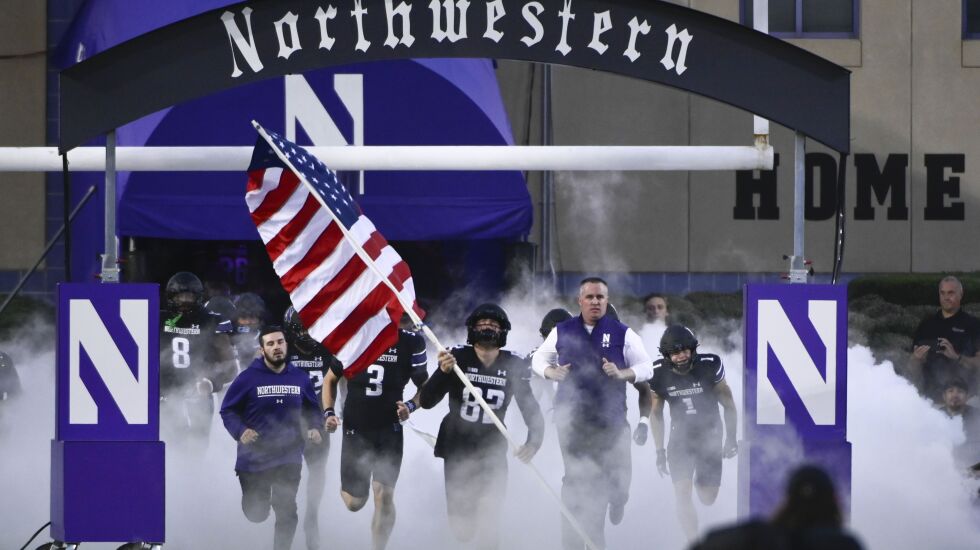
As a community activist and former candidate for Evanston mayor, I have noted how the proposed Ryan Field project and rezoning efforts have been at the forefront of political discussions. I believe there is one overriding issue: Does Evanston have a government of its own, or is its city government simply an extension of Northwestern University and implementer of its wishes?
When listening to advocates of the stadium development, you would think the opposition consists of a small congregation of residents who hate entertainment and fun.
But those who are against Northwestern’s plans have outlined four core tenets that are absent from Northwestern’s proposal: A community benefits agreement, payments in lieu of taxes (to help Evanston offset losses in property taxes tied to Northwestern’s nonprofit status), meaningful job creation, and respect for residential zoning.
The opposition has never questioned Northwestern’s right to renovate their existing property. At a time when Evanston faces budget uncertainties, a dwindling Black population, and a rising cost of living, the four tenets would provide benefits for residents throughout Evanston.
Because of its size, Evanston lacks large commercial or industrial zones, leaving the bulk of the revenue generation to residential neighborhoods.
This problem is heightened due to Northwestern properties being 10% of Evanston overall. A majority of its campus sits on the most valuable land in Evanston, and a report by former City Manager Wally Bobkiewicz stated that the lost property tax revenue equated to roughly $28.8 million in 2017. Additional property acquisitions and inflation would increase that amount by 2023 standards.
Northwestern has historically given $1 million a year to Evanston via the Good Neighbor Fund; however, those contributions are a fraction of the amount that comparable universities such as Yale (more than $23 million in fiscal year 2022) and Harvard (more than $13 million in FY22) give to their respective municipalities in payments in lieu of taxes.
Evanston is looking to raise property taxes by 7.9% to cover a budget shortfall. If NU entered a payment in lieu of taxes agreement, it would negate the need to further hurt residents.
A community benefits agreement, legally binding and enforceable, would give elected officials the tools to create guarantees of contributions and benefits to constituents. In exchange for stadium redevelopment, Northwestern and Evanston city government could engage in negotiations to establish a payment in lieu of taxes program to give direct financial contributions for services for residents, alleviating pressure on the city’s budget.
An affordable housing fund could be created to construct units that would remain affordable for decades, allowing residents to live in place. Union wage jobs and employment guarantees could be provided to those developing and staffing the stadium so that they earn enough to live here.
Evanston schools, which are directly impacted by Northwestern’s tax-exempt status, could receive funding that would increase their standing in the state and nation. A community benefits agreement would positively impact the lives of every Evanston resident whom our elected officials ostensibly represent. Northwestern’s current proposal falls far short of this.
Northwestern President Michael Schill has promised:
- A one-time $10 million workforce upskilling development program via the Ryan Family.
- $2 million from concerts.
- $500,000 split between the two Evanston school districts.
- $250,000 a year for a yearly community event.
The most recent economic report stated Evanston would receive only $200,000 in additional tax revenue from concerts, suggesting no significant additional benefit to the city. None of these promises would be guaranteed by a legally enforceable document, leaving Evanston out of luck if promises go unkept.
Mayor Daniel Biss served in the General Assembly and led in creating coalitions throughout the state; it’s why Evanston voters overwhelmingly elected him. The lack of concrete and tangible benefits for residents suggests a broader failure at the negotiating table.
City Council members from all nine wards must stand and demand a community benefits agreement that is transparent and legally enforceable, dutifully serving the residents of Evanston. We finally have a chance to alleviate financial burdens for our city and for Evanstonians who have been hurting for too long. Accepting pennies when residents deserve the whole dollar would represent a miscarriage of justice that would further prevent Evanston from becoming the best version of itself.
Sebastian Nalls lives in Evanston’s 9th Ward. He graduated from Evanston High School in 2018 and Purdue University in 2022.
Send letters to letters@suntimes.com
The views and opinions expressed by contributors are their own and do not necessarily reflect those of the Chicago Sun-Times or any of its affiliates.







